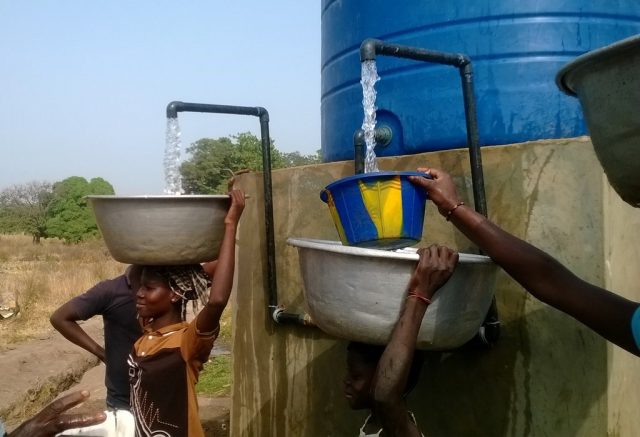Water in Benin – What You Need to Know
🏞️ 1. Sources of Water
Benin’s water supply comes from:
- Groundwater wells (boreholes, pumps)
- Rivers and lakes (like the Ouémé River and Lake Nokoué)
- Rainwater collection in rural areas
- Municipal water supply in urban areas (managed by SONEB – Société Nationale des Eaux du Bénin)
🚰 2. Is Tap Water Safe to Drink?
❌ Not Safe for Drinking (without treatment)
- In most parts of Benin, tap water is not considered safe to drink directly.
- Contamination risks include bacteria, parasites, and industrial or sewage runoff.
- Locals often boil water, use filters, or drink bottled water.
✅ Safe uses for tap water: washing, showering, cooking (if boiled)
🧴 3. Bottled & Treated Water
- Widely available in cities and towns
- Common brands: Cristaline, Vitale, Possotomè
- Cost: 300–500 XOF ($0.50–$1) per 1.5L bottle
💧 4. Rural Access to Clean Water
- In remote villages, access to clean water is limited.
- Many communities rely on:
- Manual pumps
- Shared boreholes
- Rainwater tanks
- NGOs and government programs are expanding clean water infrastructure under SDG6 (Clean Water & Sanitation)
🧼 5. Water & Hygiene Tips for Travelers
| Tip | Why |
|---|---|
| Drink bottled or filtered water | Avoid waterborne illness |
| Use bottled water for brushing teeth | Prevent ingestion |
| Carry a portable water filter | Useful in remote areas |
| Avoid ice in street drinks | May be made with unsafe water |
🧪 6. Water Quality Monitoring
- SONEB manages public water systems in cities like Cotonou, Porto-Novo, and Parakou
- NGOs like WaterAid and UNICEF support safe water access projects in rural Benin
✅ Summary:
| Water Use | Safe? |
|---|---|
| Tap water (unfiltered) | ❌ Not recommended |
| Bottled water | ✅ Safe |
| Boiled water | ✅ Safe |
| Water in restaurants | ⚠️ Ask if bottled or treated |
















